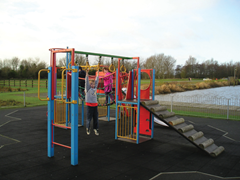 With another major report on child abuse within the Catholic Church recently published, the Government is planning reforms of the child protection laws in Ireland. Stephen Dineen reports.
With another major report on child abuse within the Catholic Church recently published, the Government is planning reforms of the child protection laws in Ireland. Stephen Dineen reports.
One of the notable changes to department structures brought in by the new Government was the establishment of a Department of Children and Youth Affairs, elevating the previously ‘super junior’ portfolio to a senior ministry. The Minister, Frances Fitzgerald, has had plenty to deal with since her appointment in March, not least the issue of child abuse and child protection laws. The Government has now promised that guidelines on identifying and reporting child abuse will be put on a statutory footing, a system of inspection and oversight of compliance and other legislative measures.
In July the report of another major inquiry into child abuse allegations was published, this time on complaints, allegations and concerns about sexual abuse by Catholic clerics between 1996 and February 2009 in the diocese of Cloyne. Yet again, the report highlighted failures by Church authorities to deal with allegations of abuse by its members, and there was widespread criticism that the authorities failed to abide by the Church’s own 1996 child protection guidelines.
The dangers of inaction were highlighted again when a Donegal school caretaker was sentenced to 18 years for the abuse of four boys. The convictions related to activities between 1990 and 2005, yet the man had pleaded guilty to sexual assault in 2002 but continued to do intermittent repair work for the school. An Garda Síochána has said that it informed the then Health Board of the conviction and where the man was believed to be working. They also claimed that they spoke to the owner of the school about the conviction and their concerns about his continuing employment.
Sharing information
Following the Cloyne report the Minister for Children and Youth Affairs published revised child protection guidelines, ‘Children First’, which outlines the actions to be taken where there are concerns of abuse. Minister Fitzgerald announced that she will be putting these guidelines on a statutory footing, so that compliance will be mandatory. In practice this will mean organisations will be compelled to share information and co-operate with relevant services and a legal duty to report reasonable concerns about abuse or neglect.
 Over the years the absence of co-operation by authorities on information or concerns of abuse has been highlighted. In his 2010 report, the Government’s Special Rapporteur on Child Protection, an independent expert who is mandated to keep under review legal developments on child protection, stated: “Arguably, statutory agencies such as the HSE are not adhering to their duties and regrettably the law is not assisting them to do so. The failure to regulate the exchange of soft information severely compromises the protection of children in the state.” A 2010 report by the Children’s Ombudsman into implementation of the ‘Children First’ guidelines found evidence of “failure in the period up to (but not including) 2008 to put in place appropriate mechanisms to drive forward interagency implementation,” stating that the failure involved “unsound administration”.
Over the years the absence of co-operation by authorities on information or concerns of abuse has been highlighted. In his 2010 report, the Government’s Special Rapporteur on Child Protection, an independent expert who is mandated to keep under review legal developments on child protection, stated: “Arguably, statutory agencies such as the HSE are not adhering to their duties and regrettably the law is not assisting them to do so. The failure to regulate the exchange of soft information severely compromises the protection of children in the state.” A 2010 report by the Children’s Ombudsman into implementation of the ‘Children First’ guidelines found evidence of “failure in the period up to (but not including) 2008 to put in place appropriate mechanisms to drive forward interagency implementation,” stating that the failure involved “unsound administration”.
Children’s groups have welcomed the proposal on statutory obligations. Senator Jillian van Turnhout, Chief Executive of the Children’s Rights Alliance, which had been advocating a statutory footing for the guidelines since 2006, said the measure will provide those working with children “with a clear, legal responsibility to report and act on suspicions where a child’s safety or welfare may be at risk.” One in Four, a support group for people who have experienced sexual violence, welcomed the commitment to investigate historic allegations of abuse, with its Executive Director Maeve Lewis claiming “very few of the child protection concerns we pass on to the HSE are investigated, as more recent cases take precedence.”
Disclosure
The Minister for Justice has committed to introducing a Criminal Justice Bill on withholding information on crimes against children and vulnerable adults. It will make it an offence to withhold information relating to a serious offence against a person under the age of 18 or an intellectually disabled person. There will be safeguards for victims who withhold information, a person under 18 or a vulnerable adult.
There has been much debate about the Government’s plan not to exempt priests who hear information in confession from this legislation. The challenge to the ‘sacerdotal privilege’, as it is called, is likely to put the legislation on a collision course with the Catholic Church and possibly the legal and medical professions, which will also be bound by mandatory reporting. The proposal has also been questioned by the Irish Association of Social Workers, with its president Ineke Durville expressing concern that dealing with such a requirement might be taken away from the area of early intervention and prevention of abuse.
As the Special Rapporteur on Child Protection stated, the transfer of ‘soft’ information [insufficient evidence for conviction] is curtailed by the law. Currently, agencies such as the HSE, which along with An Garda Síochána is a statutory agency responsible for child protection, can only pass on information to a third party through the broad wording of Section 3 of the Child Act. The Departments of Justice and Children are currently preparing legislation to put the vetting of applicants for employment working with children on a statutory basis. This legislation, the National Vetting Bureau Bill, will allow for the transfer of ‘soft’ and ‘hard’ information for vetting purposes.
Another aspect of reform of child protection law which the Government will be faced with is the sensitive issue of disclosure of information relating to a complainant’s counselling or medical records in any criminal trials. At its heart is the conflict between a complainant’s right to privacy being undermined by disclosure of such records versus an accused person’s right to a fair trial being denied by the lack of disclosure. In his 2010 report the Child Protection Rapporteur said it is likely that “appeals based on the lack of disclosure of such records will become more common.” He said Ireland urgently requires legislation governing this issue.
There are other issues on the Minister for Children and Youth Affairs’ desk. Establishing a new child protection and welfare agency, work on a new National Children’s Strategy, and preparation for a referendum on children’s rights (now expected in the early part of next year) are among them. Strengthening measures to prevent or detect child abuse is likely to remain high on the Minister’s agenda.
